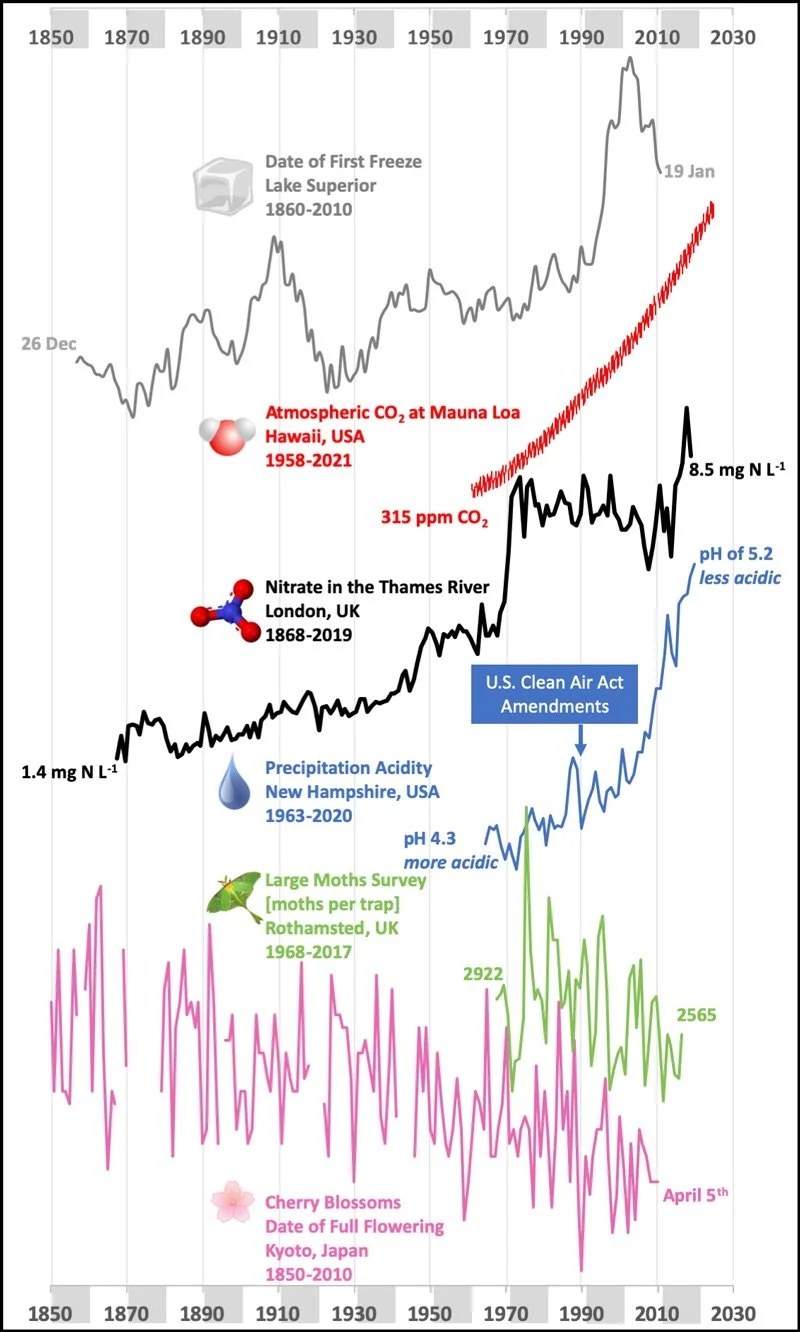Protecting Long-Term Datasets with World Heritage Status | Rosi et al. 2022, 2023
Long-term cherry blossom records have documented climate change over centuries. Source: David Emrich via Unsplash
Some environmental data sets that have proven especially useful in shaping scientific understanding of global change: ice cover in Lake Superior, the Keeling curve, nitrate concentrations in the River Thames, the acidity of precipitation at Hubbard Brook, the large moths survey collected in Rothamsted, U.K., and the timing of cherry blossoms in Kyoto, Japan. Source: Rosi et al. 2023
Long-term environmental datasets, such as the Keeling curve of atmospheric CO₂ concentrations or cherry blossom dates in Kyoto, are invaluable for documenting our changing planet and the impact of human activity on the biosphere. However, the future of many such datasets is precarious. Their continuation is often dependent on unpredictable factors such as funding cycles, shifts in funding priorities, or chance events. In 2022, Emma Rosi et al. argued for the establishment of an international "World Heritage datasets" designation to protect and recognize critical, high-impact environmental records. This designation would ensure that these datasets, which are part of our cultural and planetary heritage, receive the necessary attention and funding to remain sustained and accessible for future generations.
Their proposal, elaborated upon in their 2023 AGU publication, suggests that an organization like the UN Environment Programme could develop the criteria and a process for awarding World Heritage status to these datasets. Such recognition would not only secure the datasets' longevity but also encourage the creation of new long-term environmental records. The designation would also highlight the datasets' role in significant scientific discoveries, such as the identification and legislative control of acid rain, underscoring their value beyond the scientific community to people and wildlife. Long-term records are essential for understanding global change and for the development of effective strategies to address environmental challenges.


